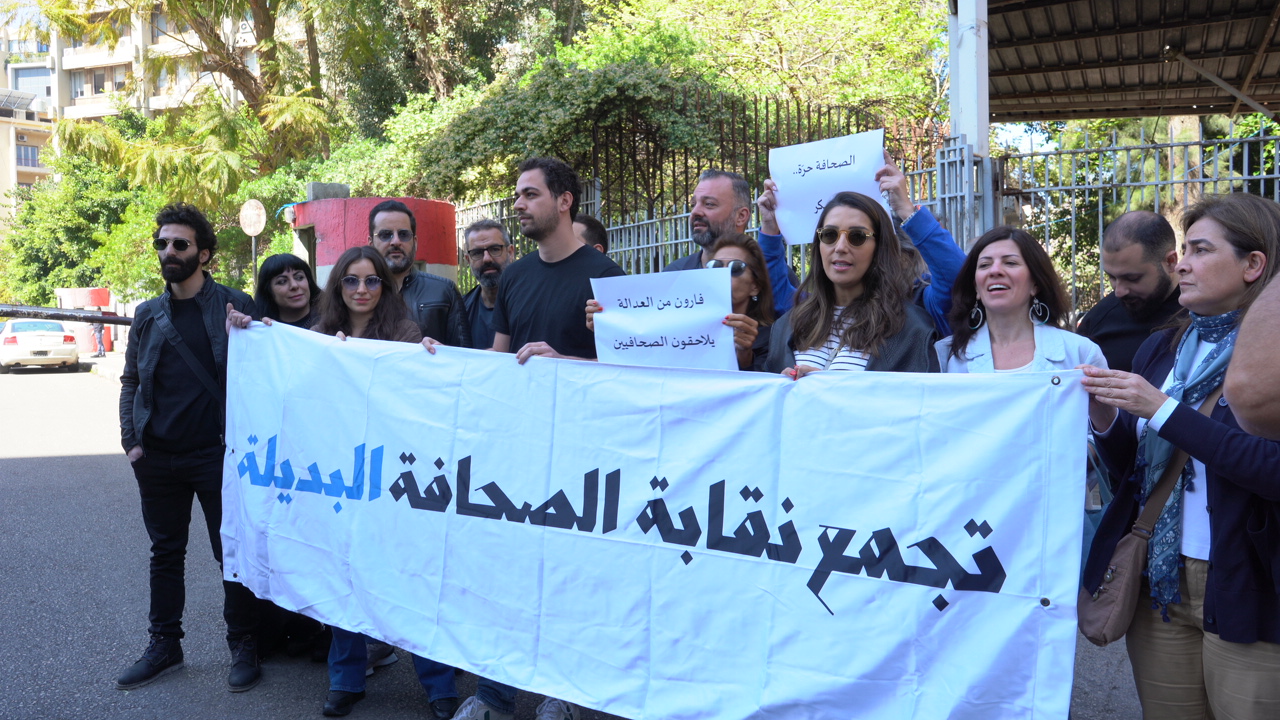Minister of Information Ziad Makari informed Megaphone co-founder Jean Kassir on Tuesday that Public Prosecutor Ghassan Oueidat had retracted his complaints against the outlet.
This comes after State Security had summoned Kassir a second time on Monday, wanting him to appear in front of them on Tuesday morning.
The Public Prosecutor’s complaint is not in line with Lebanese law, as Article 28 of the Prosecutions Law indicates that journalists can only be prosecuted in courts, not security agencies. Should an investigation be required, judges are the ones who should conduct it, not the security forces.
Megaphone’s lawyer, Diala Chehade, attended the questioning instead of Kassir.
This event follows recent developments affecting the freedom of media and journalists in Lebanon.
The Public Source’s Editor in Chief, Lara Bitar, has also been summoned for questioning on Thursday by the Cybercrimes Bureau on behalf of the Lebanese Forces. The latter took issue with an investigation published by The Public Source exposing environmental crimes committed by the party, then a militia, during the Lebanese Civil War.
Journalists were not the only targets this week. Indeed, The Independence of the Judiciary Coalition (IJC), a group formed following Lebanon’s 2019 protest movement, revealed that lawyer Nizar Saghieh was summoned to a hearing at the Beirut Bar Council. The move comes after the Bar council imposed new measures that restrict lawyers’ freedoms, according to the IJC, including restrictions to media appearances.
These developments come as freedom of expression in Lebanon faces increasing challenges. In an article published on Tuesday, SMEX, an organization that works on advancing digital rights in Lebanon and the MENA region, said that while journalists are being summoned for questioning, activists are facing pressure for expressing their views on social media.
Most notably, the Mount Lebanon region has been witnessing a heightened wave of arrests and raids against political activists, the article said.
In contrast, Lebanon’s Press Editors Union, seen by several journalists and activists as an ally of the state, released a report on media freedom on Monday, where it said that, “the general framework of freedom is acceptable in Lebanon.”
SKEYES, a nongovernmental organization and proponent of freedom of expression in Lebanon and the Levant, told SMEX that they documented over 800 violations of media freedom in the country over the past six years.
While political and investigative journalism is dealing with continuous risks and restrictions, often accused of disturbing public peace, the Lebanese state has yet to act against the increase in hate speech in mainstream and social media. In their latest report, SKEYES claimed that “hate speech is increasingly becoming a systematic approach to influencing public opinion and its perception of people, groups and politics.”
Lebanon has been dealing with an unprecedented economic crisis, with the local currency collapsing, electricity services switching off, medicines disappearing and people still demanding justice for the 2020 Beirut port blast. Instead, authorities seem to be going after journalists, lawyers, and activists who go after powerful figures or political parties.
The country’s governing figures, along with their allied bankers and security officials, are often blamed for causing the crisis. The World Bank even called Lebanon’s situation a “deliberate depression.” With no political, social or financial reforms in sight, it seems journalists attempting to hold those in power accountable will have to face increasing scrutiny.


